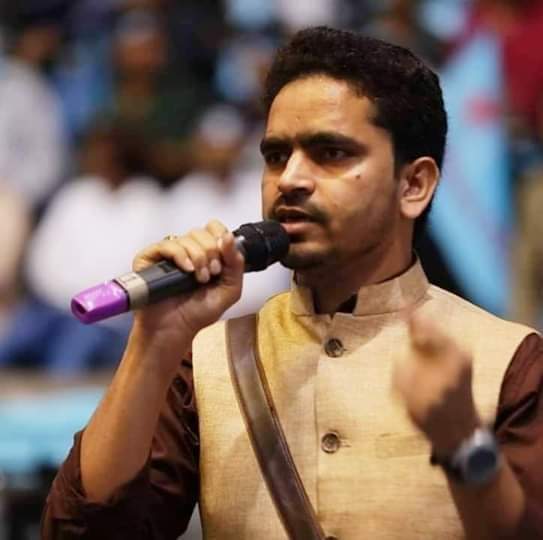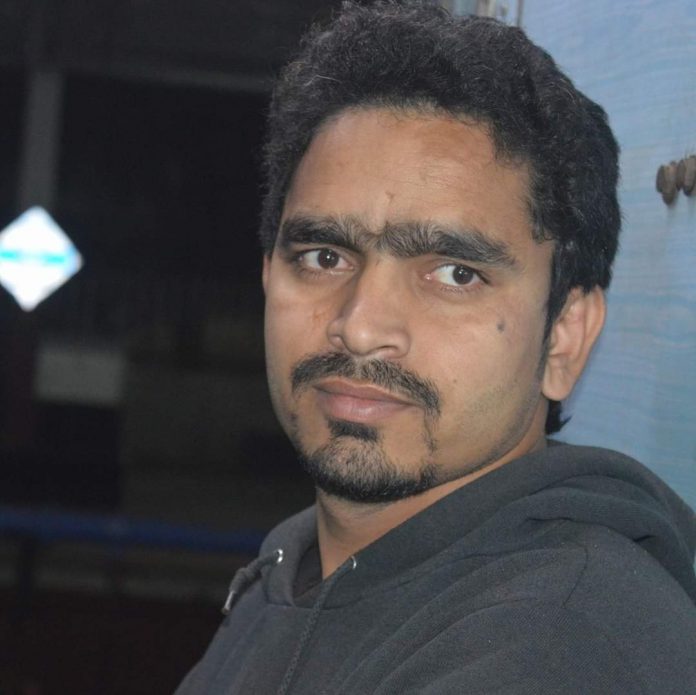By Sukanya Roy, TwoCircles.net
Bahraich: Mohd. Najmuzzaman is a research scholar pursuing his PhD in Urdu literature at Aligarh Muslim University. He hails from Jarwal town in Uttar Pradesh. For the past three months, he has been unable to go home. He fears that he will be arrested by the local police, ever since his online activity has rendered him the subject of targeted communal attacks, intimidation and legal persecution.
In April, Najmuzzaman shared a Facebook post of one shopkeeper Sabbu keeping his clothes shop open in Jarwal Kasba, flouting lockdown regulations. Since the matter had drawn scant attention, he urged the police to take stock of the implications it might have on public health and safety. Sabbu, a prominent member of the local traders’ association, reportedly shares a closeness with its president, BJP leader Pramod Kumar. Najmuzzaman questioned why influential people were exempted from following lockdown rules which were enforced persistently for poor traders.
Sabbu’s cousin, Iqrar Ahmad, retaliated to this post with abuses and death threats over a call. When Najmuzzaman tried to lodge a complaint against him, Jarwal police asked him to come to the station and submit an application. Najmuzzaman, who was stuck in Delhi due to the lockdown, was unable to do so. Consequently, his complaint was not recorded.
A week later, a minor from Jarwal was detained for sharing a status against Sabbu and company. When the minor came out of custody, people asked him why he had blamed Najmuzzaman in this case, which left him very surprised.

Najmuzzaman explained this to TwoCircles.net in two ways, “Sabbu’s cousin, Iqrar Ahmed, saw this as a ripe opportunity to frame me. Firstly, I had shared the status against Sabbu who had kept his shop open during the lockdown.”
“Secondly, in December last year, some people in Jarwal had decided to take out a rally protesting against the Citizenship Amendment Bill. The police denied us permission. So, I had posted a picture of the police standing along with local members of BJP and allied traders, who had taken out a rally of their own in support of the controversial CAB,” he added.
The Jarwal Police filed an FIR on 23 April, under Sec. 66 (1) and Sec. 505 (inciting communal disharmony), against him. It has been over 100 days since the FIR was filed, but the police have not detailed a chargesheet against Najmuzzaman. He says, “It is fishy that a chargesheet has not been drawn out yet”, which leaves it open to the possibility of arbitrary charges. “I have applied for zamanat (bail) in the district court, but that is useless without a chargesheet,” he said.
Najmuzzaman adds quietly, “I am scared I will be walking into a trap. I have stayed away from home for Eid and Bakri-Eid now. I don’t know when I will be able to return”.
Speaking on the phone, his 70-year old mother, Shamsunnisa, said, “I wait for him with a heavy heart. Every day I ask him, when are you coming home? I am very troubled by his condition, and hope he can be by my side soon.”
The sinister angle to Najmuzzaman’s name being included in the FIR is the police backing it up with a video of an anti-CAB protest at Aligarh Muslim University, where one can catch a glimpse of him shouting slogans during the burning of the draft bill. The official perspective on Najmuzzaman’s accusation proves one thing: a rightful exercise of one’s freedom to peacefully protest, may be taken out of context when a suitable political need arises.
On 15 August, first-year journalism student Misbah was arrested for sharing an Independence Day message criticising the RSS. On 4 August, police arrested six people from Jarwal Kasba. One of them had posted a status regarding completion of one year since Kashmir’s semi-autonomous status was revoked, and the inauguration of Ram Mandir in this context.
TwoCircles.net spoke to Sahibe Aalam, one of those arrested and sent to jail. “On 4 August, my friend, Aleem Ahmad was arrested by the police at 11 am for posting the status. He sent out a broadcast message on WhatsApp informing friends of the situation. I was concerned, so I took out my bike and rode to the police station 9 kilometres away”, says Aalam, the owner of a four-wheeler repairing shop.
“When I arrived, I saw that the police had confiscated Aleem’s phone and the cyber cell team had arrived. They sent a few people over to my shop and confiscated my phone as well. Then they summoned Qamruddin Babbu to the PS, another friend of ours, and took his phone too. We were charged under Sections 153 (A) and (B), 295 (A), 298, 505 (1) and (2)”. All of these criminalise the spread of divisive ideas on grounds of race, religion and caste.
Further, Shahabuddin, Salman Ahmad and Md. Fahad was also asked to come to the station. Then, their gruelling wait started. All six of them were kept in custody at the police station for over 55 hours. “They kept asking us, what are you all up to, tell us everything. We didn’t know what to say, we didn’t have a secret plan. Sure we were sharing dissenting messages, but how can we agree to word-to-word with something unfair that the government is doing?” asks Aalam.
The press note released by the Jarwal police on 6 August paints a “false narrative” of the situation, he says. It mentions that Aleem, Sahibe Aalam and Qamruddin were found sitting together in Aleem’s chemist shop and sharing online propaganda messages. They had to be nabbed as a preventive measure against communal unrest. Soon, the trio was taken to the District Jail where they were kept for another 25 hours before being produced in front of the magistrate.
“We were at our respective places of work that day. Qamruddin doesn’t even have a smartphone, what online messages could he have shared? There has been an atmosphere of fear since December of last year in Jarwal. People are being arrested for false or vague reasons. We too were asked many questions but didn’t get any answers”, Aalam states.
Shahabuddin, Salman and Fahad were released after the 55-hour detention. However, this experience was not without its scars for them either.
Shahbuddin, who is a middle-school teacher in Jarwal, says, “I lost my face after this incident. My students were wondering why their teacher was taken into police custody. People in my neighbourhood also cast their suspicion on me. I feel it will be difficult to recover my reputation now, although I didn’t do anything illegal.”
He adds, “The children of our community can’t be blind to the situation in their country, and just study their textbooks. Aren’t these detentions demotivating them to think critically?”
Although Najmuzzaman is still unable to go home and has regular anxieties regarding his future, he quotes a couplet by Rahat Indori, not only to honour the famed Urdu poet’s memory but illustrate his own predicament, as he finds his life mirrored in art: “Wo keh raha hai ke kuch dino me mita ke rakh dunga nasl teri / hai uski aadat dara raha hai, hai meri fitrat dara nahi hu (translation: they claim that they will wipe out my breed soon/ while it is their habit to threaten, my spirit keeps me unafraid).”


